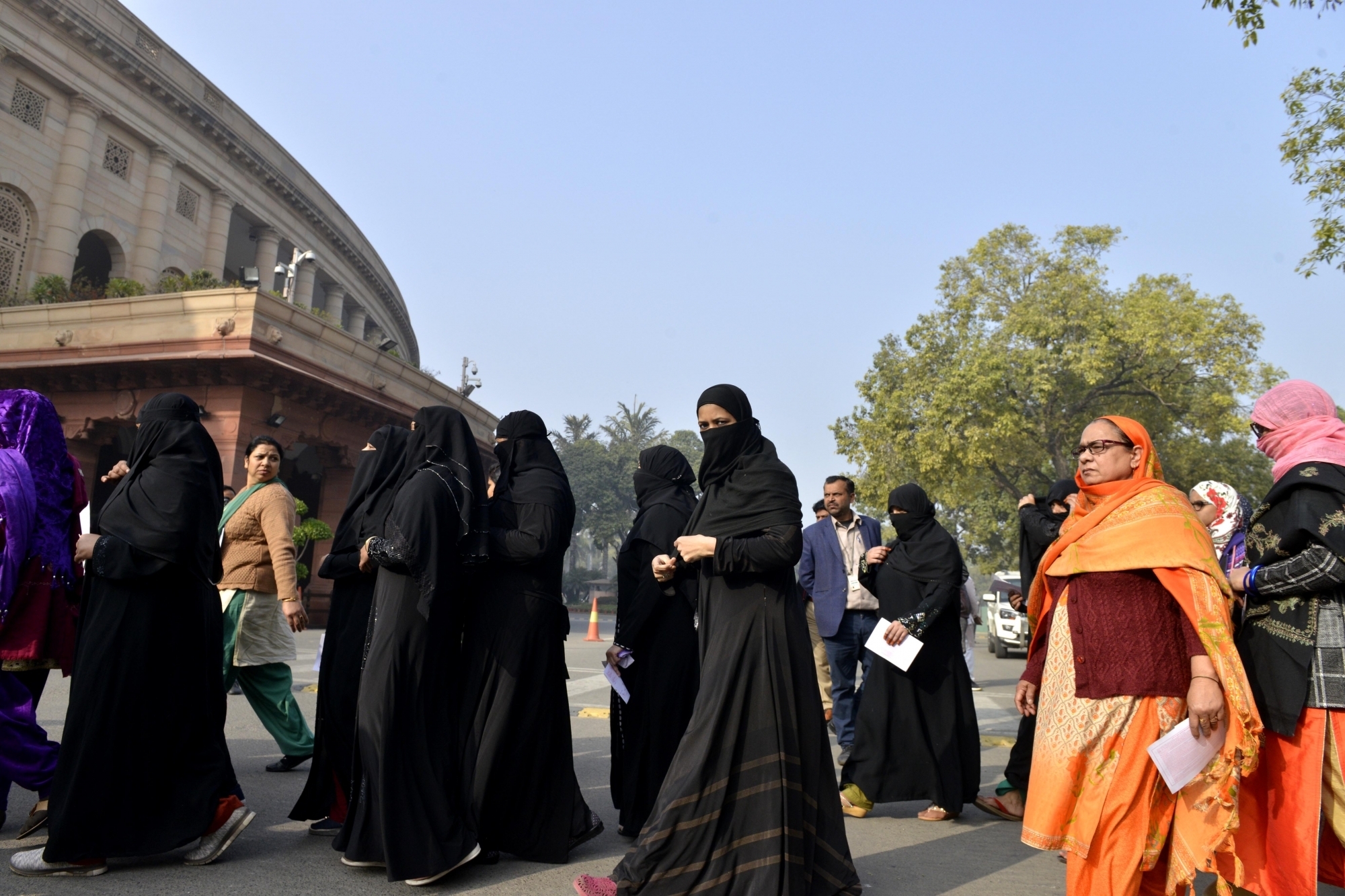Opposition parties may stall the passage of the Muslim Women (Protection of Rights on Marriage) Bill, 2017, better known as the Triple Talaq Bill, which will be strongly pushed by the Narendra Modi-led National Democratic Alliance (NDA) government in the Rajya Sabha during the monsoon session of Parliament beginning 18 July.
The bill, which was passed in the Lok Sabha on 28 December last year, makes instant triple talaq in any form—spoken, written or by electronic means such as email, SMS or WhatsApp—illegal and void, with penal provision of up to three years in jail for the husband. The Congress did not vote against the bill in the Lok Sabha.
The bill, sources said, will have to incorporate amendments sought by the Congress and other Opposition parties, failing which it may not be passed in the Rajya Sabha where the NDA still does not have the majority, and it may be sent to a Select Committee for review.
The Congress, according to sources, will seek amendments, as it had done in the Lok Sabha in the existing bill, as it claims that it has several “loopholes”. The party wants these “loopholes” to be removed before the bill becomes an Act. Therefore, it will press for sending the bill to a Select Committee. The Congress wants a review on the jail term provision asking how a man in prison will provide maintenance and upkeep of his wife and children he has abandoned using triple talaq.
Speaking to The Sunday Guardian, Congress spokesperson Meem Afzal said though his party was not against the bill, it had many shortcomings that may not withstand legal scrutiny. “It is for the Congress Parliamentary Party to take a final call on the issue. But even legal experts have raised fingers about certain provisions. The government has not given a thought over the repercussions of these provisions,” he added.
Several parties that are opposing the bill, abstained from voting in the Lok Sabha. Among them were the Biju Janata Dal, AIADMK, Trinamool Congress, Rashtriya Janata Dal, All India Majlis-e-Ittehadul Muslimeen (AIMIM) and the Indian Union of Muslim League (IUML).
Sources said the Opposition’s requests for changes are likely to be passed as the ruling NDA does not have a majority in the Rajya Sabha. Thus, it is believed that the government would have to either incorporate these amendments or send the bill to a Select Committee for review. In that case, the bill is unlikely to be passed in the monson session.
Manoj Jha, the spokesperson of Lalu Yadav’s party RJD, told this newspaper, “We have always taken a principled stand on the issue. This was not the right time to introduce the bill. The Supreme Court passed the judgement and the process of natural churning within the Muslim community is going on.”
“The government should have given more time to allow this. Moreover, unlike the Lokpal Bill, different parties and stakeholders were not consulted which is against the basic spirit of democracy. Moreover, there is no clarity about maintenance or upkeep of the family in case the husband is sent to jail. Also, the bill criminalises triple talaq, but does not leave any scope for reconciliation,” added Jha.
Besides the triple talaq bill, the government will also push for giving constitutional status to the National Commission for Other Backward Classes (NCOBC). The two controversial bills will top the government’s agenda and there are chances of confrontation between the Opposition and the Treasury Benches over them.
That apart, the government will also like to pass some other bills such as Transgender Persons (Protection of Rights) Bill 2016, National Medical Commission Bill 2017 and Right of Children to Free and Compulsory Education (Second Amendment) Bill 2017.
There will be 18 working days during the session, which concludes on 10 August. The legislative business will include passage of six ordinances promulgated during the inter-session period before the monsoon session. There will also be election to the post of Deputy Chairman of the Rajya Sabha as the term of incumbent P.J. Kurien is ending this month.
Sources said the monsoon session is likely to be stormy, going by the record of the budget session, which worked for only 21% of the allotted time in the Lok Sabha and 31% in the Rajya Sabha.

